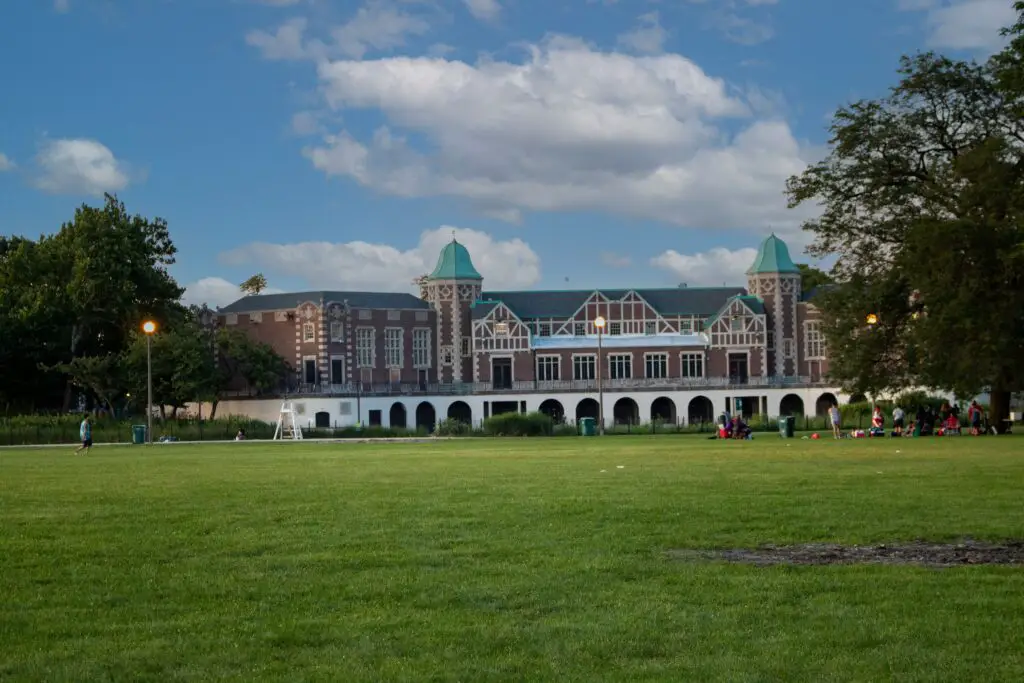Many colleges and institutions in Las Vegas serve a wide range of academic and professional interests. There are numerous educational institutions in Las Vegas where you can enrol in classes for a career or pursue a degree. This post will look at how many universities there are in Las Vegas and give a rundown of some of the more significant ones.

How many colleges are in Las Vegas?
Las Vegas is home to a number of colleges and universities, including both public and private schools as well as career colleges. UNLV, CSN, NSC, Touro University, Roseman University, The Art Institute of Las Vegas, and Le Cordon Bleu College of Culinary Arts are a few of the most well-known. It’s crucial to take into account aspects like programme options, location, price, and student life while selecting a college. Several of these institutions now provide online courses and programmes, giving students more flexibility in their pursuit of a degree. The best institution for you will ultimately depend on your unique needs and goals, so it’s critical to conduct thorough research and make a well-informed choice.
Colleges in Las Vegas: An Overview
There are numerous schools and institutions in Las Vegas that serve a wide range of academic and professional interests. Below is a list of some of Las Vegas’s most renowned universities:
Public research university of Nevada, Las Vegas (UNLV): UNLV offers undergraduate and graduate degrees in a variety of subjects, including business, education, engineering, health sciences, law, and liberal arts.
The largest community college in Nevada, College of Southern Nevada (CSN), offers associate’s degrees, certifications, and programmes for career development on three campuses.
NSC is a public four-year college that grants bachelor’s degrees in a range of subjects, including business, psychology, nursing, and education.
Providing graduate and professional programmes in osteopathic medicine, education, and health sciences is Touro University Nevada, a private, non-profit institution.
A private, nonprofit university, Roseman University of Health Sciences offers undergraduate and graduate degrees in the health sciences, including pharmacy, nursing, dental medicine, and healthcare administration.
The Art Institute of Las Vegas is a private, for-profit college that offers courses in fashion, media arts, design, and culinary arts.
A private, for-profit university that offers culinary arts courses is Le Cordon Bleu College of Culinary Arts.
Notable Colleges in Las Vegas
Several prestigious colleges and institutions with distinctive fusions of academic and vocational programmes may be found in Las Vegas. The following are a few of Las Vegas’s most renowned universities:
UNLV is a public research university with approximately 350 undergraduate and graduate programmes spread across multiple colleges. The hotel and gambling management programmes at UNLV, which benefit from Las Vegas’ booming tourism sector, are particularly well-known.
The largest community college in Nevada, College of Southern Nevada (CSN), offers associate’s degrees, certifications, and programmes for career development on three campuses. The nursing and allied health programmes at CSN are particularly well-known for preparing students for in-demand jobs in the healthcare sector.
NSC is a public four-year college that grants bachelor’s degrees in a range of subjects, including business, psychology, nursing, and education. The education programmes offered by NSC are particularly well-known for preparing students for careers as teachers and administrators in K–12 institutions.
Providing graduate and professional programmes in osteopathic medicine, education, and health sciences is Touro University Nevada, a private, non-profit institution. The medical programmes at Touro are particularly well-known for preparing students to work as doctors and other healthcare professionals.
A private, nonprofit university, Roseman University of Health Sciences offers undergraduate and graduate degrees in the health sciences, including pharmacy, nursing, dental medicine, and healthcare administration. Roseman University is particularly well-known for its top-ranked pharmacy curriculum.
The Art Institute of Las Vegas is a private, for-profit college that offers courses in fashion, media arts, design, and culinary arts. The culinary arts curriculum at the Art Institute, which prepares students for jobs as chefs and restaurateurs, is particularly well-known.
A private, for-profit university that offers culinary arts courses is Le Cordon Bleu College of Culinary Arts. Le Cordon Bleu is particularly well-known for its demanding culinary education that prioritises practical kitchen practise.
Conclusion
Let’s sum up by saying that Las Vegas is home to a wide range of schools and universities that serve a range of academic and professional interests. Students can select from a variety of programmes to assist them reach their educational and employment goals, ranging from public research universities to private culinary schools. Las Vegas provides colleges and universities to meet your needs, whether you’re looking for a regular four-year degree, vocational training, or specialised education. Las Vegas is an attractive area to live, work, and study due to its vibrant culture, burgeoning economy, and thriving tourism sector.
Frequently Asked Questions
- In Las Vegas, how many colleges are there?
A. Colleges and universities, both public and private, community colleges, and vocational schools can be found in Las Vegas. Depending on how you define a college or university, the precise number may change.
- What are the most well-known universities in Las Vegas?
A. The most well-known institutions in Las Vegas are UNLV, CSN, and NSC, which provide a variety of programmes in several disciplines.
- How do I pick the best university in Las Vegas?
A. Take into account aspects like curriculum offerings, location, price, and student life when selecting a college in Las Vegas. To acquire a better understanding of the school’s culture and academic rigour, it’s also a good idea to visit the campus and speak with instructors and current students.